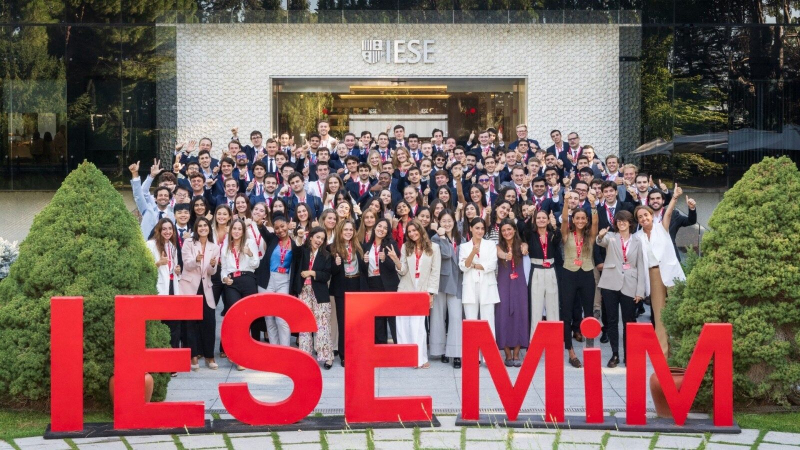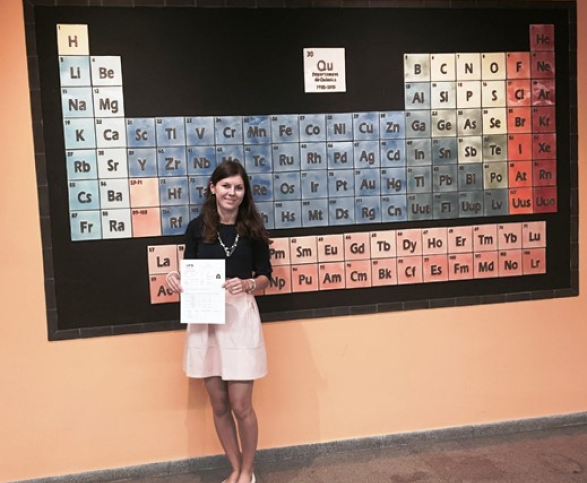
Karol Liszka, who in 2023 started studying at the Spanish university IESE Business School, University of Navarra, in the Master in Management program, answers the questions.
Why did you decide to study abroad?
I decided to study abroad for three main reasons. First, I am fascinated by multiculturalism, which is an inherent part of life at a foreign university. It not only increases our knowledge of the world but also provides opportunities to encounter perspectives that can completely change our worldview. Second, I wanted to experience the culture of a different country. Not just the lifestyle, but also the mentality that defines how we approach everyday problems. Finally, foreign universities often offer a higher level of education, not only in terms of material but also in terms of faculty.
What were the biggest challenges you faced starting your studies?
The biggest challenges at the beginning of studying abroad were the cultural differences, especially between Spain and Poland. Adapting to the new environment required flexibility and openness to new customs. Day and night are treated differently, as is the approach to punctuality. Additionally, local bureaucracy follows its own rules; some required formalities can be slightly problematic without knowledge of the language, but people are generally very eager to help.
What are, in your opinion, the biggest advantages of studying abroad?
In my opinion, the biggest advantages of studying abroad are the opportunity to directly experience another culture. Being abroad allows you to experience a lifestyle governed by completely different principles. It not only broadens your perspectives but also helps you refine yourself as a person. However, the greatest advantage is access to innovative approaches to learning. This not only develops me as a student but also as an individual, opening my mind to diversity and novel teaching methods.
What was the application and admission process like for a foreign university?
IESE University of Navarra Business School operates on a “rolling admissions policy,” which means there is no specific deadline for when applications are closed. Applications are accepted until the student limit is reached. The university offers an optional meeting where you can learn more about the school and the admission process before applying. Then, you fill out an online application, providing your details, information about previous studies, work experience, recommendations, answers to several essays on topics related to your experiences and character, and the required documents such as transcripts, a scan of a language certificate (IELTS, TOEFL), and GMAT (or GRE) exam results. However, the university offers the option to take their own exam, which is comparable to the GMAT in terms of content. The process usually takes 4-6 weeks, after which an interview with a representative of the university is conducted, and within a few weeks, you receive the admission decision.
What impact does studying abroad have on your professional development? Are you already noticing any positive signals?
IESE places a strong emphasis on support, focusing on real-world professional issues and helping in job search and career planning. This helps me develop the skills necessary to handle challenges in business and everyday life. I not only see the value of the knowledge we receive but also have direct contact with the CDC (Career Development Center), which exists solely to support us in recruitment processes and finding our career path. Additionally, the university has very active platforms to which we have access as students. These platforms provide job offers from around the world in companies interested in graduates of our specific program.
Do you have any advice for someone who also wants to study abroad?
For those who want to study abroad, my advice is to do thorough research. Research helps narrow down the often overwhelming number of options and align the direction with our expectations. Once you have even an improvised list of universities, I definitely recommend reaching out to alumni of those schools. This can not only help verify if the university and program are a good fit but also provide a closer look at the school’s culture. And finally, don’t rush. There are many universities, and each offers something unique, so it’s worth taking a moment to do some reconnaissance (but not too much, as there are specific deadlines).


